Have you ever wondered what would happen if you accidentally hit a deer? Are you liable for the incident, and would your car insurance cover the repair costs? Hopefully, it does not happen to you, but is it illegal to hit a deer and drive off?
The answer is no. It is not illegal to accidentally hit a deer with your car and drive off. It would be supposing your car did not sustain massive damage. However, although not illegal, leaving a deer carcass on the road is not quite ethical. You will also be violating the unspoken driving etiquette of rural folks.
Read on to learn more about what happens if you hit a deer and drive off.
Is It Illegal to Hit a Deer and Drive Off?
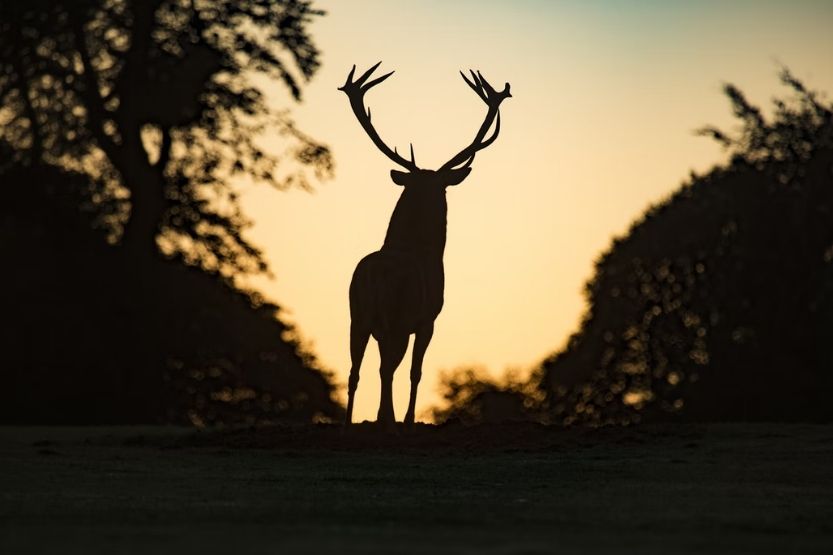
Many variables determine who is at fault if a vehicle hits an animal on the road. However, the most crucial factor is the type of animal that figured in the acceded.
No Legal Liability for the Accident
Is it a wild animal, livestock, or domestic animal? If you hit a deer, you will not be facing any legal liability for the accident. The reason is that it is a wild animal. Wild animals include elk, deer, and other critters.
Special Laws for Livestock
However, if you accidentally hit livestock (cows, pigs, sheep, goats, etc.), special laws help determine liability. The liability will be dependent on the state. For instance, holding the livestock owner for damages in states that allow free-range farming is impossible.
However, in states that require fencing, the animal owner is responsible for letting them stray into the road.
Leash Laws for Domestic Animal
If you hit a domestic animal, like a dog or cat, the owner is mainly responsible due to leash laws. Domestic animals, in this case, include cats and dogs.
A deer is a wild animal, and they are very unpredictable. One moment you think the road is clear. Suddenly, this huge beast comes bounding out from the side of the road.
Most of the time, deer crossings can be so fast. It is almost impossible to react and avoid a collision due to the speed. This is why it is not illegal to hit a deer accidentally.
Now, here is the answer to the question. Although it is not illegal to hit a deer and drive away, you should do some things after the incident.
What Should You Do When You Hit a Deer?
If you accidentally hit a deer with your vehicle, here are the steps that you need to take:
1. Pull Over to the Side of the Road
If your car is still in a drivable condition and you’re not too traumatized after hitting a deer, slowly pull over to the shoulder. Engage the e-brake and turn on your hazard lights. Don’t get out of your vehicle unless you need to, and stay clear of the road.
Move your vehicle to a safe space. Pull your car off the roadside and turn on your hazard lights. If you need to leave your vehicle, stay out of the road. You also have to be away from any oncoming traffic.
2. Call the Authorities
Once you’re safely on the roadside, call the authorities and inform them about the accident. Also, tell the officers if the deer is still on the road as it is a serious road hazard.
If the accident resulted in injuries or property damage, you might need to file an official report. Don’t worry as the officer will help you with it. The police report will also help you with your insurance claim later.
3. Document the Incident
If you can, take pictures of the accident scene. Take pictures of the roadway and surrounding areas. There should also be pictures of the deer, the damage done to your vehicle, and any injuries you have incurred. If there are any witnesses, get their names and contact numbers.
You still have to file a police report even if the impact of the collision did not kill the deer. Do it even if the deer managed to run away. Take pictures or videos of the animal’s blood and fur left behind.
4. Stay Away from the Deer
Do not assume that the deer you hit is already dead. Deer are massive animals, and it will take a huge hit to kill them. There is a huge chance that the animal you hit is just in shock.
The moment it notices you are there, it will attack you to protect itself. Taking a hit from a panicked deer’s hooves will not be pleasant.
5. Don’t Assume That Your Car Is Safe to Drive
Although your car seemed to only receive light front-end damage from hitting a deer, it is unsafe to keep driving it. It is best to take it straight to a trusted mechanic and have it checked out for any problems. There might be hoses that got unplugged.
Some components may have also gotten damaged, but they are not as apparent to the untrained eye. Also, if the mechanic does find something wrong with your car, you can file an insurance claim for the repairs.
Driving Restrictions for Deaf People
How to Prevent Deer Collisions in the Future
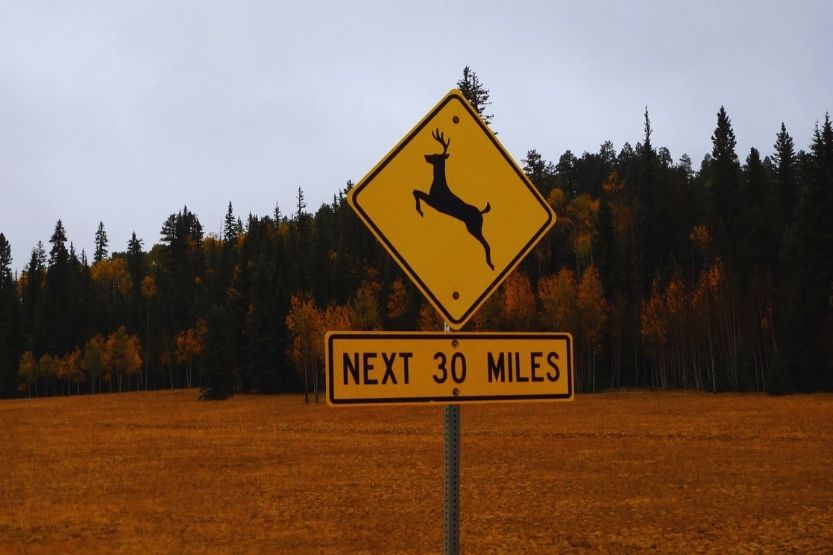
Although you cannot prevent accidents, you can least take steps to mitigate them. The next time you are driving through deer country, here are some things you should keep in mind:
1. Be Mindful of Road Signs
Often, if a stretch of road has high deer collisions, the state government would place warning signs. Deer crossing signs are bright yellow (often reflective), diamond-shaped, and have a silhouette of a bounding deer.
Ease off the gas if you see this sign while driving down a country road. Keep an eye on the sides of the road, too.
You should always expect a deer to come running across the road when you see deer crossing signs. This way, you will not be caught off-guard too much, and you can react to the situation properly.
2. Use Your High Beams at Night
Roads in deer country are often pitch dark at night. The reason is that they usually do not put street lights to avoid disturbing the local wildlife. Also, installing and maintaining street lights on rural roads is not financially feasible. It is because not many cars drive through anyway, but I digress.
When driving through rural roads without a deer crossing sign, you should still anticipate wild animals crossing the road. To keep them at bay, alert them of your presence. You can do that by turning on the high beams when no other vehicles are on the road.
3. Observe Speed Limits
It is tempting to push your car to the limit when you’re on a long stretch of country road. However, for your safety, please observe the speed limit.
This is especially true when there are deer crossing warning signs on the road. Driving within the speed limit will give you enough time to react and slow down your car. This is in case a deer suddenly crosses the road.
Another reason why you should not be speeding through deer country is if you hit one while going at great speed, it will be like hitting another car.
There are thousands of stories where cars have been totaled after a high-speed collision with a deer. There were also times when the animals would just run away as if nothing had happened.
4. Familiarize Yourself with Deer Behavior
If you know how deer behave, you can somewhat predict what they will be doing. For instance, deer often travel in family groups. Female deer travel together during the winter months.
Meanwhile, fawns would travel with their mothers during the spring through the summer. If you see one deer crossing the road from a distance, immediately slow down. There likely are other deer traveling with it.
You need to be extra careful during the fall. The reason is that the bucks may constantly be on the move due to the rutting season. Also, be wary during dusk and dawn. Those are the times when deer are quite active.
5. Don’t Swerve
If a deer gets caught in your headlights, the most important thing to remember is to avoid swerving. Keep the steering wheel straight and step on the brakes as hard as possible.
This will at least slow down your vehicle to minimize the car’s damage and deer’s injuries. Hitting a deer at 60 mph will cause more damage than hitting it at around 20 mph upon stepping on the brakes.
If you swerve, there’s a chance that the deer will jump into your path. This can make the damage even worse. In addition, if you swerve, you will lose control of your car.
You might hit a tree, light post, fence, or oncoming traffic. This might seem difficult because it is your instinct to avoid the deer. However, if you’re even just a bit conscious of what you need to do, you can manage to do it.
Again, is it illegal to hit a deer and drive off? Call 911 when you hit a deer so that they can properly dispose of the deer. Some states consider driving off after hitting a deer unsafe and illegal.
Do You Need to Report the Accident to the Police?
You are not legally obligated to call the police unless the accident damages property. This damage could be like your car crashing into a light post or fence. However, it is better to contact the police because it will benefit you.
Here are some reasons why you should call the police if you hit a deer or any animal on the road:
1. Proper Guidance
The police will guide you through the proper procedures. Although you can also find the information needed in filing an accident report, having an officer’s help makes it more accessible.
The police officers will guide you through the procedures while ensuring that you take the proper safety measures.
2. Ease in Filing Insurance Claim
Calling the police will make filing an insurance claim easier. You will likely need to get your car repaired after hitting a deer.
The worst-case scenario is that you might even need to buy a new one. Having an official police report on hand when speaking with your insurance company makes the entire process go much smoother.
Aside from the police, you should also contact your insurance provider. The sooner you contact your insurance, the faster they can process your claim. Meanwhile, if the damage is not too serious, you can go without filing a claim. You can easily pay for the repairs out of pocket.
Should You Take the Deer You Hit Home?
It will depend on the state you are in. Some states will let you take home the deer, but others explicitly forbid it. Some states allow you to take home the carcass and butcher it yourself. However, you can do it only if it is hunting season.
If you think of making the best of the situation, you will still need to file a police report. While filing, ask the officers for a permit to take the carcass home.
They will likely give you a permit if it is legal where you are at. It does seem like a waste to dispose of a perfectly good deer.
Is it alright to take home a deer hit by another car? Technically, no. You will still need to get the necessary permits from the local law enforcement to pick up roadkill.
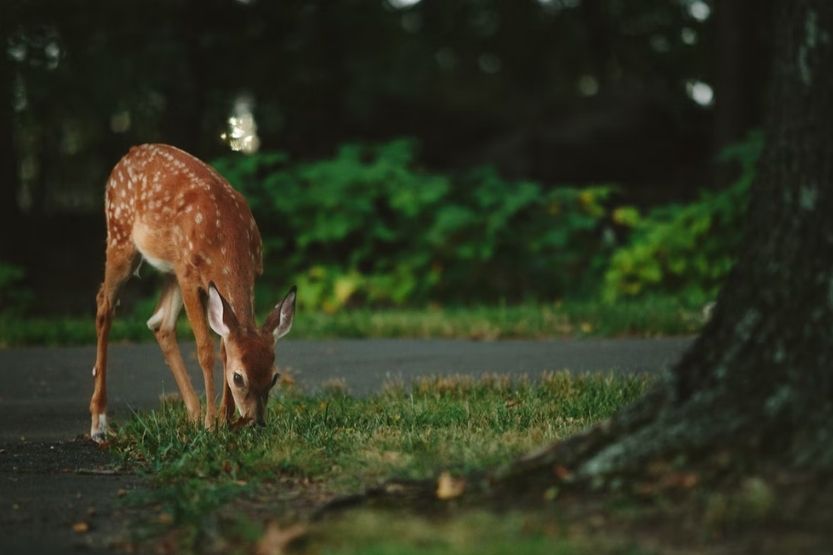
Is It Safe to Eat Deer You Hit with Your Car?
Yes, you can eat the deer that you hit with your car. You may salvage a good amount of venison from it. This will depend on how hard you hit the animal and where. If you know how to butcher and prepare deer meat, you can also sense which parts are still good to eat:
What Can You Do If the Deer You Hit Runs Off?
You can still file an accident report even if the offending deer manages to leave the scene. The process of filing a police report remains the same.
However, documenting the damage will be a bit more detailed. Take pictures of the damaged parts and focus mainly on the parts where deer fur and blood are visible.
When Are You More Likely to Hit a Deer?
Research done by the University of Connecticut showed that most traffic for deer-related accidents happened between 6 to 10 PM. Also, most deer collision accidents happen in November, the middle of the deer mating season. This means the deer at this time of year are more active.
Does Wearing a Seatbelt Help in Deer Collisions?
Majority of the people who were seriously hurt after their car hit deer were not wearing their seatbelts. Of course, the seatbelt will not prevent the collision from happening. Still, it will significantly reduce the amount of danger you are in.
Deer are huge creatures, and they can reach up to 400 pounds in weight. It will be like hitting a small car. If you hit a deer head-on, the sudden deceleration will cause serious injuries to both you and the animal.
Also, make sure to strap in your passengers for safety. The reason is that the sudden deceleration will cause your passengers to fly towards the front. This is if you have to slam on the brakes because a deer suddenly jumped in front of your car.
Does Hitting a Deer Increase Your Insurance Premium?
Accidentally hitting a deer does not typically cause your insurance premium to rise. Insurance premiums usually increase after the insured figures in “chargeable accidents.”
These are those where the vehicle driver is at least 50% liable for the accident. The accident should also involve damage to another person’s property (like a car, fence, gate, etc.), serious injuries, or death.
In addition, figuring in a deer collision accident will not be added to your driving record. Like increasing your insurance premium, the accident will go into your record if it damages another person’s property. However, the deer-hitting incident will still go into your insurance claims history.
Conclusion – Is It Illegal to Hit a Deer and Drive Off?
Are you wondering if there are legal troubles when you hit a deer and then drive off? The answer is no. Supposing your car did not sustain massive damage after hitting a deer, it is not illegal to leave the scene.
However, leaving a huge deer carcass in the middle of the road violates the unwritten rule of the proper rural area driving.
Although it is acceptable to drive away, it will be more beneficial and safer to call local law enforcement. Aside from receiving the needed assistance from police officers, an official police report will also make insurance claims easier.
Read next:
Where Can I Sleep in My Car Legally Near Me?





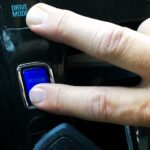
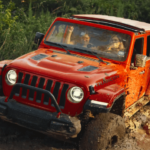
![Read more about the article How to Find Your Driver’s License Number [5 Ways]](https://roadsumo.com/wp-content/uploads/2022/03/how-to-find-my-drivers-license-number-300x200.jpg)

